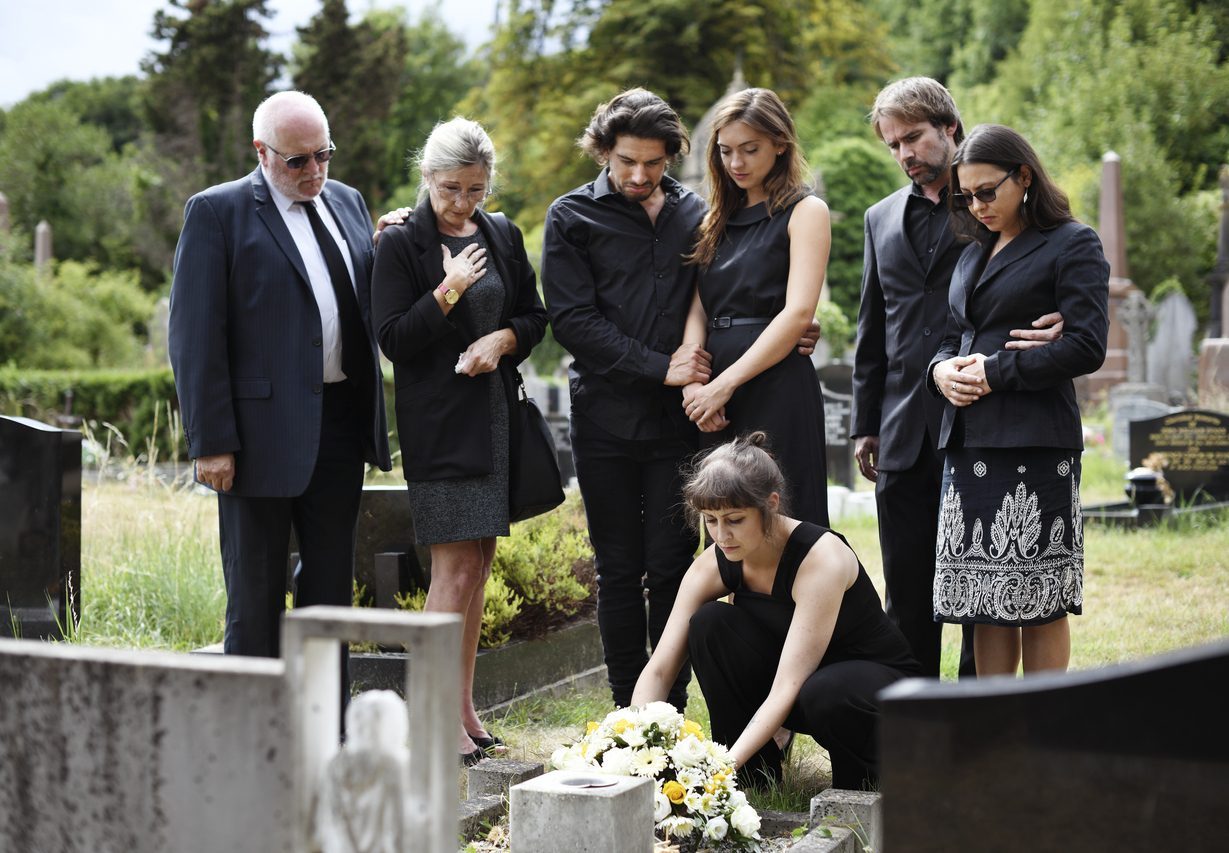Episode 36: Calloway County workers’ compensation attorney Jeff Roberts discusses workplace fatalities and how benefits are assigned in the event of a Kentucky workplace fatality.
Jeff begins by clarifying that a workplace fatality may occur as an immediate result of the injury or later (days, weeks, months or even years.). Surgical complications occurring some time after the injury has occurred will still typically be classified as a workplace fatality, assuming the surgery was related to the original injury sustained on the job.
How Much Does the Surviving Spouse Receive?
If someone dies from a workplace injury, their beneficiaries are eligible to receive benefits from the Kentucky workers’ compensation system. The spouse will receive a percentage of the deceased worker’s average weekly wage, at the time of the death. This is usually 50% of that calculation. A spouse’s benefits could be decreased to 45%, if there are minor children. The children would also receive benefits. Jeff explains that if there is no spouse, but there are minor children, the benefits would be given to the children, based on the number of children. The benefits paid to the children would not be lower than 15%, regardless of the number of children.
How Long Does the Spouse Receive Benefits?
In the case of a Kentucky workplace fatality, there are two considerations. The surviving spouse would receive benefits until the deceased spouse would have turned 70 years old. If the spouse remarries, he/she would receive benefits for up to 2 years after the new marriage. Whichever event occurs first will end the benefits.
How Long Do the Minor Children Receive Benefits?
Minor children receive benefits from the Kentucky workers’ compensation system until they reach the age of 18. However, if they are enrolled in an accredited, educational institution, those benefits can extend until age 22. This could include college, an accredited trade school, etc.
Can People other than the Spouse or Minor Children Qualify for Benefits?
Yes. In some cases, the deceased worker may have been caring for an elderly parent or an adult child (who may be disabled). Potentially, the elderly parent or adult child could be eligible to receive benefits from the Kentucky workers’ compensation system. It’s important to note that if a minor child would have normally become an adult dependent (i.e. due to a physical or mental disability) that child’s benefits could last beyond the age of 22.
Average Weekly Wage Calculation
This topic was discussed in Episode 2 of Jeff’s podcast. The Average Weekly Wage includes compensation from the employer, at the time of the workplace injury or work-related fatality, but also other income coming from side jobs, assuming the employer knew about that side job(s).
Who Is Responsible for Payments Going to Minor Children?
If a minor child is eligible to receive a benefit payment from KY workers’ compensation, the check will typically go to the person with custody of the child (a surviving parent, grandparent with court-ordered custody, etc.). Under the Kentucky workers’ comp system, the money does not need to be spent in certain ways.
In a personal injury case, which is different from a workers’ comp claim, if the benefits being paid to a minor are $10,000 or more, the court will usually require that it be placed in a blocked account. As Jeff discussed in Episode 16, judges also commonly accept structured settlements as an alternative to a blocked account. A new bill was recently passed and signed by the Governor increasing the $10,000 to $25,000 net recovery.
Jeff goes on to explain that it is possible to use a structured settlement in a workers’ comp scenario. It may be a good idea when a lump sum settlement is negotiated, on behalf of a minor, especially when the claim results from a Kentucky workplace fatality. The growth of the settlement is tax-free. Additionally, there are many different ways to allow for payments for specific milestones or needs.
Experience Pays Off
Workers’ compensation attorney Jeff Roberts has almost 30 years of experience handling injury-related cases in Western Kentucky. He’s seen many different types of injuries and multiple issues related to those workplace injury claims. Knowing when and how to negotiate settlement for his clients, such as considering a structured settlement option, is a valuable asset.
Jeff is often contacted by other attorneys, throughout the state, when it comes to complicated questions about Kentucky workers’ compensation law. They recognize his knowledge in this area and often benefit from it. It’s one of the reasons Jeff has either taken his own clients’ claims to the Kentucky Supreme Court, or has been asked by other attorneys to argue their cases before the KY Supreme Court.
Kentucky Workers’ Comp Lump Sum Death Benefit
We’ve discussed how the weekly or bi-weekly benefit payments are made to the spouse and/or dependents in a Kentucky workplace fatality claim. However, there’s also a lump sum death benefit payment, in addition to the other payment.
The lump sum death benefit for a worker who is killed on the job is paid to the estate of the deceased worker. It can pay for funeral expenses and other related costs, as well as providing other funds to the beneficiaries. The amount has increased significantly over the years. Due to the cost-of-living increases, the amount of the lump sum benefit increases typically each year.
Jeff clarifies that the Kentucky statute places a time limit on the eligibility of the lump sum death benefit. In order to qualify, death must occur within 4 years of the date of injury. The weekly or biweekly payment would still be paid, even if the death occurred beyond 4 years from the injury. This is a significant difference between the 2 types of benefits.
Company provided life insurance proceeds are completely different from either of these two benefits. Life insurance is unrelated to the workers’ compensation benefits.
Attorney Fees for a Workplace Fatality Claim
In Kentucky, the attorney fees in a workers’ compensation claim are capped. This applies to a work injury claim or a workplace fatality claim. Jeff also explains that he works on a contingency fee basis, which means no fees are charged, upfront. If Jeff is successful in your case, fees and expenses are deducted from the settlement. It’s Jeff’s personal policy that if he is unsuccessful in your case, the fees and expenses are not billed to the client.
We hope you found this episode insightful and helpful. Thank you for listening!
Is It Time to Speak with an Attorney about Your Workers’ Compensation Claim?
The office phone number is (270) 753-0053. For more information, visit www.JeffRobertsLaw.com. This podcast is meant to provide information and is not legal advice. Jeff’s principal office is located at 509 Main Street, Murray, Kentucky. Co-host Jim Ray is a non-attorney spokesperson. This is an advertisement.



